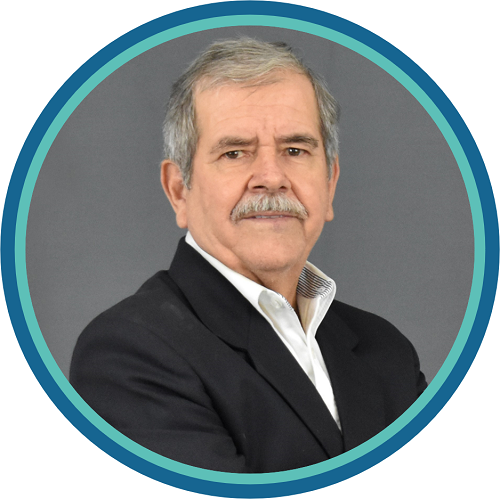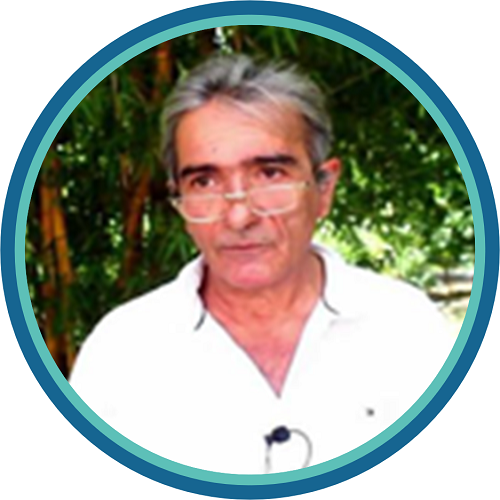Topics
We invite authors to submit their abstracts for the field of hydrogen energy. Some key topics are listed here as a guide for the authors. Call for abstracts dates will be published in August.
Contributions to WHEC-2024 should be original and should not have been presented elsewhere. The submissions should make clear the main scientific, technical and economic points to be addressed, while also paying attention to innovative and unique aspects. WHEC20224 topics include, but are not limited to, the following:
Track 1. Hydrogen Production: Thermochemical and Photonic Methods
Thermochemical and Photonic Methods, is aimed at students, researchers, developers, technologists, and companies interested in all aspects of hydrogen production by thermochemical or photochemical means. This can be based on conventional production or using renewable energies. It includes a review of the different challenges that must be covered to obtain hydrogen at competitive prices. It also consists of all studies of suitable materials that allow increasing production at high conversion rates and correcting deficiencies in thermochemical or photochemical reactions, such as the sintering of materials and their morphological instabilities. Experimental techniques and the modeling and simulation tools used for this purpose are covered. This track welcomes other innovative proposals for hydrogen production through thermal means.
Track 2. Green Hydrogen: Production and Mobility
This track will create plenty of space for analysis and discussion concerning current advances and upcoming technologies across the complete Green Hydrogen (GH2) value chain. GH2 value chain involves green electricity generation, H2 production, distribution, conversion (ie. gaseous/liquid/solid states; hydrogen carrier molecules, etc.) and storage as well as the H2 applications in mobility (including aviation and shipping), processes, heat supply, power generation or H2 replacement in fossil-based feedstocks (refineries, fertilizers, steel, and chemicals).
Furthermore, this forum will provide an opportunity to discuss the evolving Green Hydrogen landscape whilst enabling ample networking with the global scientific and industrial communities. Successful experiences from international companies working in the GH2 field are welcome. Contributions on normativity and regulation issues are also highly regarded within the scope of the session.
In addition, this track is a scientific platform to discuss recent advances in fundamental concepts regarding to GH2 production technologies, materials and component design, device development for water splitting, electrocatalysts toward hydrogen and oxygen evolution, fuel cells and electrocatalysts for hydrogen oxidation and oxygen reduction reactions, power generation and heat production.
Track topics
- Green electricity generation
- GH2 Production – Electrolysis & Biopathways
- GH2 distribution, conversion and storage
- GH2 mobility: transportation, aviation, and shipping
- Applications of GH2 in the industry.
- Fuel Cells & Electrolyzers: Key Materials & Components
- GH2 as replacement of fossil-based feedstocks
- Water splitting electrocatalysts (OER and HER)
- GH2 in fuel cells: electrocatalysts for ORR and HOR
 |
 |
|
| Chairperson | International Co-chairperson | |
| Prof. Ivonne L. Alonso-Lemus | Prof. Agustín Valera-Medina | |
| CONAHCyT Associate Professor. Group of Sustainability of Natural Resources and Energy Cinvestav Saltillo, Coahuila, Mexico |
Director Net Zero Innovation Institute Net Zero PhD MSc CEng MIMechE FHEA Cardiff University Wales, United Kingdom |
Track 3. Hydrogen Production: Biological Methods and Biohydrogen
Hydrogen produced from the biochemical conversion of biomass leverages the future hydrogen economy. Biogenic hydrogen is produced from low-energy intensive and environmentally friendly methods, such as dark fermentation, photo-fermentation, biophotolysis, enzymatic processes, and bioelectrochemical systems. All these methods have the flexibility to use different wastes and wastewater as feedstocks, which promises the carbon neutrality and sustainability of hydrogen production.
Topics of interest for Track 3 include but are not limited to:
- Recent advances in biological hydrogen-producing processes such as dark fermentation, photofermentation, microbial electrolysis cells, etc.
- Technoeconomic and environmental analyses applied for biogenic hydrogen production.
- Hybrid biological systems.
- Valorization of effluents generated from biological hydrogen-producing processes.
- Pretreatment methods for biogenic hydrogen production
- Control, modelling and other computational tools for enhanced biohydrogen production.
- Applications of biohydrogen for transportation, electricity generation, and industrial processes.
- Policies on biohydrogen production.
Track 4. Future Perspectives of Conventional Hydrogen Technologies (CO2-CCUS)
Fossil fuels remain an essential part of the energy production needed to cover activities around the world. Currently, H2 is mostly used as an industrial feedstock, and its global production has a high carbon footprint because it relies almost entirely (≈95%) on fossil fuels. However, many technologies to produce H2 with a lower carbon footprint are available. Among these, low-carbon H2 can be produced from methane reforming coupled with carbon capture and storage (blue H2). With an increasing focus on sustainability and decarbonisation, many countries are looking for ways to use CO2 to eliminate harmful emissions and find value in this perceived “waste” material (Carbon Capture, Utilization and Storage-CCUS). This Track will show the most recent and important developments on CO2-CCUS issues at an international academic and industrial level. It is also a showcase for scientific discussion focused on latest materials and technologies for CCUS to address the transformative Science to establish a new carbon economy.
Academics and Industrial researchers in the field of homogeneous and heterogeneous catalysis, catalytic systems for the conversion of CO2 into value-added products, photo- and electro-reduction of CO2, synthesis, characterization and application of new materials and capture and separation systems, are invited to participate on the symposium (Track 4) “Future Perspectives of Conventional Hydrogen Technologies (CO2 Capture)” to share the recent advances on theoretical and experimental issues of materials and processes in CCUS.
SYMPOSIUM TOPICS:
- Materials for CO2 separation (reforming processes)
- CO2 transformation in Heterogeneous and homogeneous catalytic reactions: Alcohols, Methanation….
- Advanced materials for CCUS technologies (synthesis, characterization, and utilization)
- CO2 electro - and photoreduction
- Theoretical and computational modeling for CCUS applications
Track 5. Hydrogen Production: Nuclear and Power-to-Gas
This track aims to explore hydrogen production within the scope of its development as a system and its integration into power systems. The track is looking to engage with students, researchers, engineers, decision-makers, and companies associated with the development and integration of hydrogen technologies to present and discuss advances, needs, and opportunities in hydrogen production.
Track topics
The topics included, but not limited are the following:
- Multi MW hydrogen production
- Computational modeling of electrolysis technology
- Green hydrogen production systems
- Design and analysis of power-to-gas conversion systems
- High-temperature electrolysis systems
- low-temperature electrolysis systems
- Hydrogen energy systems in power systems expansion and operation
- Integration of hydrogen production and electricity markets

Chairperson
Dr. Javier de la Cruz Soto
CONAHCyT Researcher at ITSON
Sonora Institute of Technology (ITSON)
Sonora, Mexico
Track 6. Hydrogen Separation and Purification
The track seeks to join students with researchers from different disciplines, as well as technologists and companies interested in the Hydrogen Separation and Purification procedures; independently of the basic phenomena, like based on pressure swing adsorption, membrane separation and metal hydride separation. Polymeric, metallic, mixed matrix and ceramic membranes are also included. Modelling and simulation tools related with these topics are also covered. This track welcomes other technologies and/or hydrogen separation and purification methodologies.
 |
 |
|
| Chairperson | National Co-chairperson | |
| Dr. Roberto Benavides Cantú | Dr. Diana Morales Acosta | |
| Researcher Department of plastics transformation and processing, Centro de Investigación en Química Aplicada | Researcher Department of plastics transformation and processing, Centro de Investigación en Química Aplicada |
 |
| International Co-chairperson |
| Dr. Pasquale Cavaliere |
| Department of Innovation Engineering University of Salento, Lecce, Italy |
Track 7. Hydrogen Storage
The track is aimed at students, researchers, technologists, and companies interested in all aspects of hydrogen storage. Theoretical, simulations, and experimental studies on pressurized, cryogenic, and solid-state materials hydrogen storage are welcomed. Technical issues, thermodynamics and kinetic issues, along with politic-decisions on hydrogen storage are welcomed to enrich the discussion and international road-maps for hydrogen storage and integration with other hydrogen technologies.
Track 8. Fuel Cells: PEMFC and AEMFC
This track is dedicated to the exploration and advancement of Anion Exchange Membrane (AEM) Fuel Cells and Proton Exchange Membrane (PEM) Fuel Cells, two cutting-edge technologies in the field of sustainable power generation.
This track will be focused on the latest developments and innovations in AEM fuel cell technology, including membrane materials, catalysts, and system design. Topics covered may include AEM fuel cell performance, durability, water management, and challenges towards industrial applications. Regarding PEM fuel cells, the track will focus on the dynamic world of PEM fuel cells, discussing breakthroughs in materials, electrode design, fabrication scale-up, and system integration. Key areas of interest encompass PEM fuel cell efficiency, durability, and real-world implementations in automotive and stationary power applications.
Join us in this track to stay updated on the latest research, breakthroughs, and collaborative efforts in AEM and PEM fuel cell technologies, driving us closer to a sustainable, clean energy future.
Track 9. Fuel Cells: SOFC and other types
Fuel cells represent interesting innovative devices used for the generation of electrical energy from an electrochemical reaction between a fuel and an oxidant. Most of these devices are recognized for their high efficiency, representing a near-future contribution towards the decrease of fossil fuel dependence and the generation of greenhouse gases.
This track brings researchers, engineers, and scientists from academia, government, and industry, to share and discuss results and issues related to the science, engineering, materials, designs, and applications (among others) of Solid Oxide Fuel Cells, one of the most representative type, due to their higher efficiency and fuel flexibility. All topics related to Solid Oxide Electrochemical Cells (devices that convert fuels into electricity and vice versa) are also considered in this track.
Key topics
Topics include but are not limited to the following:
- Solid oxide electrochemical cells: Materials and processes, fuel processing, mechanical and thermal properties.
- Proton conducting solid oxide electrochemical cells.
- SOFCs and SOECs: Modeling and design of materials, cells, stacks, and systems
- On-site demonstrations.
 |
 |
|
| Chairperson | International Co-chairperson | |
| Dr. José Alonso Díaz Guillén | Dr. Massimiliano Lo Faro | |
| Grupo de Investigación en Energía y Materiales Researcher. División de Estudios de Posgrado e Investigación Tecnológico Nacional de México – Instituto Tecnológico de Saltillo |
Researcher. Consiglio Nazionale delle Ricerche (CNR), Istituto di Tecnologie Avanzate per l'Energia "Nicola Giordano" (ITAE) Italy |
Track 10. Integrated Hydrogen Energy Systems
The track is aimed at students, researchers, technologists and companies interested in all aspects of integrated energy systems based on production, storage, applications and renewable energy plants on hydrogen; Combined Heating and Power units, Hydrogen Fuel Cell and Electrochemical Compression Systems to meet the flexible demand for electrical and thermal energy. Experimental techniques as well as modelling and simulation tools used for this purpose are covered. This track welcome others hydrogen energy integrations.
 |
 |
|
| Chairperson | National Co-chairperson | |
| Dr. Luis Gerardo Arriaga Hurtado | Dr. Janet Ledesma García | |
| Responsable Laboratorio Nacional de Micro y Nanofluídica- CONAHCYT Researcher Centro de Investigación y Desarrollo Tecnológico en Electroquímica |
Researcher Facultad de Ingeniería, Universidad Autónoma de Querétaro, Mexico. |
 |
 |
|
| International Co-chairperson | International Co-chairperson | |
| Dr. Vincenzo Antonucci | Dr. Claudia D’Urso | |
| Researcher Consiglio Nazionale delle Ricerche (CNR), Istituto di Tecnologie Avanzate per l'Energia "Nicola Giordano" (ITAE) Italy |
Researcher Consiglio Nazionale delle Ricerche (CNR), Istituto di Tecnologie Avanzate per l'Energia "Nicola Giordano" (ITAE) Italy |
Track 11. Hydrogen Safety, Codes, Standards and Regulations
The development and implementation of hydrogen technologies require standards, codes, and regulations that refer to clear procedures to ensure proper and safe handling of hydrogen from its production, storage, transportation, and use.
The role of hydrogen regulation is of utmost importance because it can ensure the protection of health, safety, ecological balance, performance, and reliability of technologies and their social acceptance.
The track invites academic, political, social, and business actors to reflect on the relevant aspects of hydrogen safety and risk from a regulatory and policy perspective.
Track 12. Hydrogen Strategies, Policies, and Social Dimensions
This track addresses crucial aspects related to public policies, national strategies, technological roadmaps, and the assessment of social impact linked to the implementation of hydrogen (H2) as an energy source in community, national, and regional energy systems. We highlight the following key points concerning H2 technology:
- Public policies and regulatory framework
- National and regional strategies
- Technological roadmaps
- Planning of H2-based energy systems
- Social and community impact.
Track 13. Hydrogen Industry, Commercialization and Marketing
Hydrogen Industry, commercialization, and marketing
For hydrogen to be a reality as a solution for a sustainable and cleaner society, hydrogen technologies require an industrial scale value chain fulfilling current and future market needs. At the same time, such value chains should develop around hydrogen different applications. Industries such as electricity generation, long-haul and heavy-duty transportation, and other industries with hard-to-abate emissions like steel, cement, and chemicals manufacture, need to adopt real hydrogen solutions that guarantee expected productivity and performance at large scale, that also assist in fulfilling economic goals. Approaches for the implementation of large projects need to be innovative and technologies need to be mature enough for achieving economies of scale and reduction in development costs.
This track invites all the actors involved in the several hydrogen value chains to share their vision, technologies, real world projects, as well as current challenges, so that stakeholders seeking to contribute as soon as possible to our net zero economy, can find and understand viable paths to decarbonize their businesses and provide their markets with a sustainable and clean product options. That is, hydrogen technological products need to be commercially viable to facilitate their implementation in real world conditions. Let us talk about that.
Track 14. Hydrogen Economy, Logistics, Infrastructure and Applications.
Today, hydrogen has become a key player in the new energy economy and is driving a significant shift towards a more sustainable world. The hydrogen economy refers to an energy system in which hydrogen is produced, stored, and used as a clean and sustainable energy source. It is obtained through the electrolysis of water using renewable electricity (such as solar or wind). Hydrogen can be used in a variety of applications, from transportation to power generation and storage. Despite its many advantages, the hydrogen economy still faces some challenges. Mass production of hydrogen from clean sources and competitive prices are the biggest challenges to overcome. In addition, it is necessary to develop an adequate infrastructure for safe and efficient storage, distribution, and utilization of hydrogen. This track will focus on analyzing the progress that has been made to date.
 |
 |
|
| Chairperson | National Co- Chairperson | |
| Dr. José Roberto Flores Hernández | Dr. Humberto Rubén Becerra López | |
| Researcher Instituto Nacional de Electricidad y Energías Limpias (INEEL) | Researcher Instituto Nacional de Electricidad y Energías Limpias (INEEL) |
Track 15. Environmental Impact and Sustainable Development
The goal of track is to present and share the current state of hydrogen generation, its implementation and use, in relation with their environmental effects. And identify possible approaches and proposals to reduce, from a hydrogen economy basis, the green-house gas emissions and the global climate change.
This track of WHEC-2024 comprises the topics:
- Assessing the Environmental Footprint of Hydrogen Energy: This could include discussions on the life cycle analysis of hydrogen production, use, and disposal. The goal would be to evaluate the overall environmental impact of hydrogen energy compared to traditional energy sources.
- Hydrogen and Climate Change: Covers the potential of hydrogen as a clean energy source to reduce greenhouse gas emissions, particularly in sectors where decarbonization is difficult with current technologies, such as heavy industry and transportation. It also considers the policy and economic frameworks necessary to support the transition to a hydrogen-based economy, including incentives, regulations, and international cooperation. It comprises case studies and real-world examples of how hydrogen energy is being implemented globally to combat climate change, providing practical insights and lessons learned for policymakers, industry stakeholders, and researchers.
- Hydrogen as a Part of Circular Economy: Focusing on how hydrogen energy can fit into and promote a circular economy, including recycling of devices (fuel cells, electrolyzers, reactors, etc.) components and sustainable production practices.
- Comparative Studies with Other Renewable Energies: A detailed analysis of how hydrogen energy compares with other renewable energy sources like solar, wind, geothermal, and biomass in various aspects. This topic includes a comprehensive evaluation of efficiency, scalability, storage, distribution capabilities, and the overall environmental impact of each energy source. It also examines the integration challenges and synergies when combining hydrogen with other renewables in a unified energy system. Furthermore, the topic explores economic considerations, such as the cost-effectiveness and investment requirements of hydrogen energy relative to other renewables.
- Carbon Low Emission Synthesis of Materials for Hydrogen Generation: Focuses on developing and utilizing materials and processes that significantly reduce carbon emissions in the production of hydrogen. This topic encompasses innovations in sustainable material technology, the integration of renewable energy sources in the manufacturing process, and the implementation of advanced, eco-friendly production techniques.
 |
 |
|
| Chairperson | National Co-Chairperson | |
| Dr. Sergio Miguel Durón Torres | Dr. Fabiola Ilian Espinosa Lagunes | |
| Researcher Unidad Académica de Ciencias Químicas, Universidad Autónoma de Zacatecas, México. |
Researcher Universidad Autónoma de Querétaro, México. |
 |
| International Co-chairperson |
| Prof. Pablo Sebastián Fernández |
| Researcher Chemistry Institute-University of Campinas Center for Innovation on New Energies, Brasil. |
Track 16. The Role of Women in Hydrogen
Track 16 promotes actions to generate gender equality in the new green hydrogen industry. It is a transversal gender strategy by the SMH and IAHE seeking to connect, inform, and promote commitments and actions so that girls, young women, and scientists participate in gender equality in the development of hydrogen technologies worldwide.
This track will be focused on round table discussions to analyze the role of women in the new hydrogen industry, as well as presentations by prominent researchers and their path to achieving success as scientists. Basic-level girls and young people will also participate in workshops where they will see videos, posters, and prototypes of hydrogen technologies.
 |
| Chairperson |
| Dr. Rosa de Guadalupe González Huerta |
| Energy Network Coordinator- Instituto Politécnico Nacional Researcher ESIQIE-IPN |
 |
||
| International Co-chairperson | ||
| Dr. Marisol Rico Cortes | ||
| Researcher Jönköping University, Sweden. |
Track 17. Latin-American H2 - Industry and Government
The Track is aimed to show the interaction between Government and Industry to promote the use and generation of Hydrogen and their derivates in Latin-American countries, and the actual relationship that already exist with other continents to boost existent and planned projects. The Track will be organized by the ordinary oral, poster and Keynote presentations, also forums, round tables and side events between representants of these sectors.
Track 18. Roadmap towards Global Decarbonization: Hydrogen International Associations.
By setting specific goals and objectives and identifying technological, financial, and political opportunities and requirements, Hydrogen Roadmaps provide precise chronological actions to advance and ensure success. This track creates an opportunity to discuss hydrogen as an indispensable vector for global decarbonization and the plans visualized by the Associations and Councils of Governments. The topic will be addressed from three roundtables: America, Europe, and Asia.


